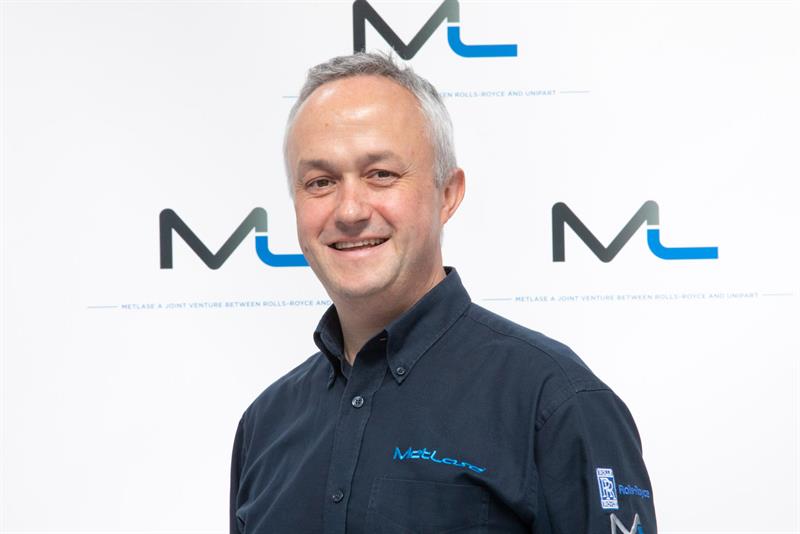Manufacturers can be forgiven for feeling a little fatigued when they hear the words ‘digital manufacturing’.
So-called industry experts, consultants and anyone with a remote interest in making money out of new software solutions have done their best to inject so many buzzwords into the sector that engineers are being turned off to the real benefits it offers.
Industry 4.0, digitisation or IoT have become commonplace in the business dictionary, fitting in perfectly next to productivity, cashflow and profits…the only issue is very few people know what they actually translate to on the shopfloor.
“We prefer to look at it in a completely different light and hopefully one engineers will switch on to,” explained Richard Gould, Business Development Manager at MetLase, a specialist in world-class tooling and intelligent fixturing and components.
“For us, digital manufacturing is not a standalone entity. Instead, it should be a critical aspect of the process and operation and it should revolve around data and, specifically, digestible, actionable data.”
He continued: “It’s our responsibility to demonstrate how easily and cost effectively data can be harvested, automatically digested and analysed, and then put to use immediately, in order to get the maximum benefit from it.
“In real time, this could be identifying areas where we can improve processes and procedures, reduce product defects, improve productivity and speed up cycle times significantly.”
MetLase, a joint venture between Unipart and Rolls-Royce, identified early on in its development the importance of creating a suite of digital products that would deliver bottom-line benefits to its clients in the automotive, aerospace, construction and renewables.
This involved taking traditional manufacturing principles focusing on assembly, bonding, measuring, workholding and assembly workstations and exploring how they could digitise them in a way that would allow them to provide their core function whilst also creating intelligent data.
Over the course of the last two years this has seen engineers at the Rotherham-based firm develop five smart products, including the Digital Gauge (conducting a digital dimensional inspection process), Smart Bench (ensures no-fault forward in the assembly process as well as connecting up-front supply chains) and Smart Cell.
The latter covers multiple manufacturing processes and can enable human interaction with cobots and robots, enabling tasks such as stock control and automated direct-to-bench supply of components and aftermarket in-service and maintenance requirements.
Richard went on to add: “We haven’t stopped there, taking a similar approach to Smart Machining, creating a smart fixture dedicated to holding a component whilst also gathering multiple types of process parameter data, such as clamping forces, vibration, temperature, and dimensional measurement – all geared towards giving the client better process control and ongoing improvements.
“The Smart Shield is the last of our digital products and digitally monitors and controls the level of localised gas shielding during the welding of a component. This technology is specifically suited to components produced in exotic alloys, which require welding under an inert atmosphere to ensure weld quality.”

These digital products are already in operation and delivering tangible benefits to clients on high-profile projects stretching the boundaries of innovation.
Examples to date include MetLase engineers working with a leading supercar manufacturer to support in-line composite pre-form measurement and the use of digital gauges at Kautex Unipart Limited (KUL) in Coventry to support the inspection of blow-moulded plastic fuel tanks.
The introduction of the new technology means the process takes just four seconds, replacing an inspection system that would usually take 45 minutes, during which time the line would churn out parts. If a fault was found at this stage, all the components made in that period would be destined for the scrap pile.
In addition to the speed increase, it also allows data to be collected that is ‘actionable’ for process improvement and machine learning.
Richard concluded: “This is just the start, as more and more customers are switching on to the benefits of digital manufacturing in the overall process.
“And we’re not just talking about impact on shopfloor. One project we’re currently exploring is the introduction of a Smart Bench to support a maritime application, where a global business has won a contract that includes an element of regenerating a region’s manufacturing sector.
“The bench potentially helps in that it instructs and inspects so well that operators, who are not highly skilled engineers, can now fulfil the operation, giving them employment and a vital start in manufacturing.
“This goes back to the point about making the benefits of digital manufacturing easy to understand…if done correctly it will help companies improve their operations, become more productive and create employment and new opportunities for UK manufacturers.”
Webinar Masterclass Series
To learn more about the MetLase approach, you can attend the next in the Manufacturing Masterclass webinar series. There are four through to the end of the year, all free to attend. Click here to read more.
About MetLase MetLase, which is part of Unipart Group alongside Instrumentel and Park Signalling, specialises in the manufacture of world-class tooling, intelligent fixturing and components, bringing lead times of months down to hours or days. |

